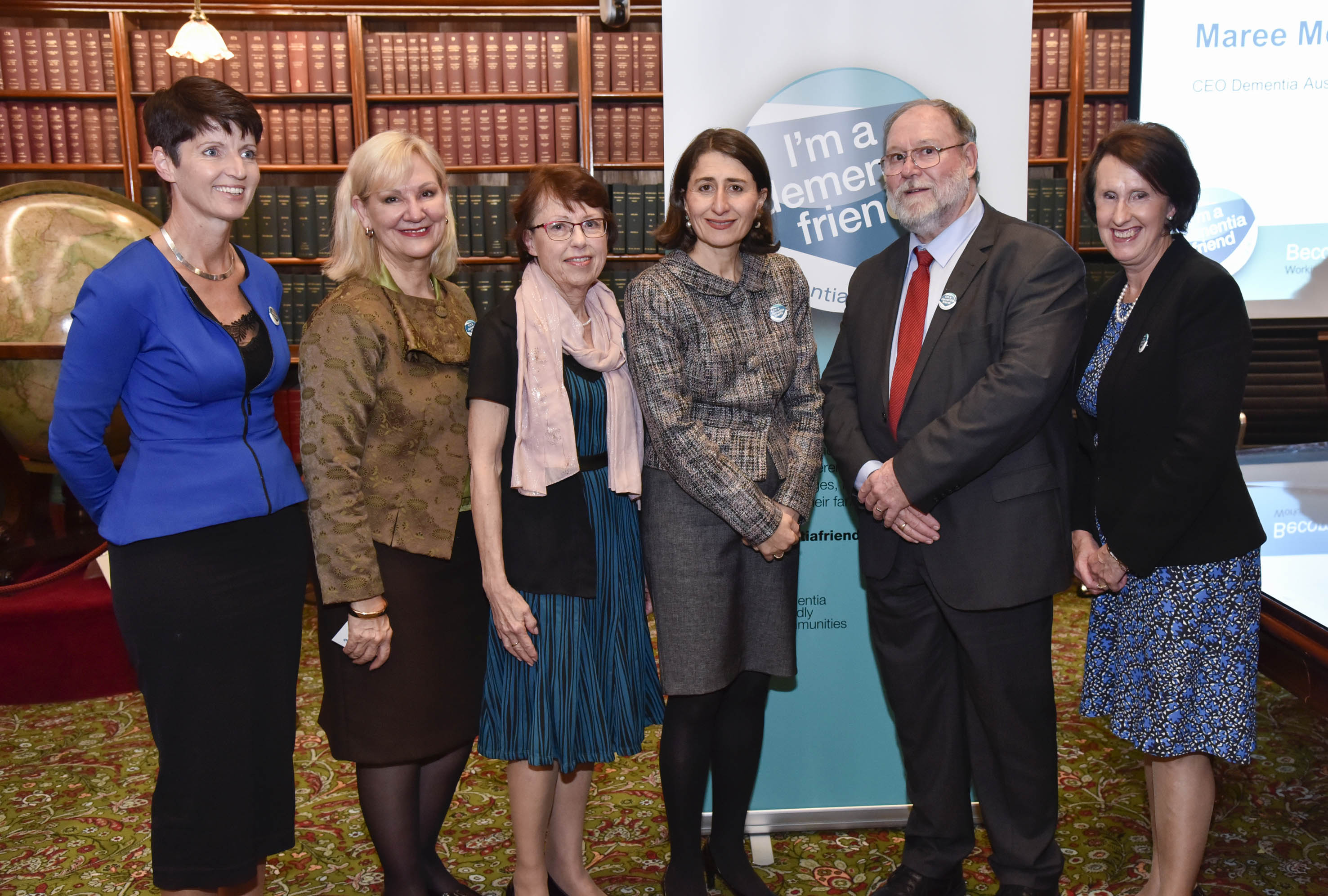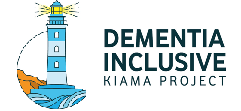Recently I was asked to address the NSW Parliamentary Friends of Dementia. What follows is the main content of my address.
Before I begin, I ask your indulgence. If my words seem confused or I stumble, its my Semantic Frontotemporal Dementia re-editing the wiki that is my internal lexicon.
Introduction
Currently somewhere over 425,000 people have been diagnosed with Dementia in Australia. That’s nearly 2% of our national population. If each of these people has a partner, a sibling and say 2 children then another 1,700,000 people are directly impacted, in total over 10% of Australia’s population are directly impacted within a 1 degree relationship. Approximately 30,000 of people diagnosed with Dementia are under 65. This has increased impact not only for the individual diagnosed and their families, but for all of society.
Dementia is terminal and there is little hope of any significant “traditional” medical cure or treatment in the near future. That is why I am actively involved in many research projects that aim to better understand the diseases or investigate ways of improving our quality of life.
Some of you may be familiar with some of the Mini-Mental tests often given to determine a level of cognitive functioning. For example you may be asked to draw a clock or name our current Political leaders. At the conclusion of one such research project in late January 2017 I was asked to name the Premier of NSW, who co-incidentally only had that role for a few days. The doctoral candidate asking me had no idea, but I was able to “educate” her, as to who our new Premier was – Gladys Berejiklian.
So it brings me to this moment. It is so important these events in Parliament House happen, and that people living with dementia are included, have a voice and are listened to. I am proud to be that voice in Parliament House today and I am representing all the people living with Dementia in NSW. I find it encouraging, that our elected officials are listening.
I thank you all for being here and wanting to become a Dementia Friend. I also offer you this challenge. Not only for you, as individuals to become a Dementia Friend, but for you to encourage your staff, families and colleagues to become Dementia Friends. The NSW state Parliament has the opportunity to become the first Dementia Friendly Parliament not only in the country but possible the world.
Thank you so much for the opportunity to not only be here but have the honour now, ladies and gentlemen, of introducing to you all The Premier of NSW, The Hon Gladys Berejiklian MP.

Dennis next to our Premier The Hon. Gladys Berejiklian and others.
Now I wish to share some of my journey
A typical diagnosis of Dementia in our younger cohort may take several years. For our elderly it may take several minutes. When diagnosed we are given no hope or encouragement to “fight” we at the best are told to go home, get our affairs in order and wait to die.
Over 6 years ago I realized I was have difficulty in recognising my colleagues, especially if they dressed differently or I encountered them outside of my workplace. I mentioned this to my GP who over the next 9 months referred me to a number of local specialists. Several of which dismissed my concerns outright. At this stage I had a variety of cognitive tests, a CAT scan, a MRI, and several ECGs none of which showed any definitive abnormalities. Then I was referred to a local Geriatrician (I was still in my 50’s at this stage). He referred me to the Frontier Group – then housed with NEURA in Kensington. After a few hours with the good Sirs at the Frontier Group and a battery of more culturally appropriate cognitive tests and some fun in their MRI they pronounced that I had FrontoTemperal Dementia and had 3 maybe 8 years or even up to 20 years left to live. That I should go home and gracefully retire. Apart from the diagnosis all I received was a list of phone numbers for dementia nurses in each local health district.
After about a year I rang the local number and they arranged for a YOD Key Worker to visit. The only support that she could offer was – if I was willing to travel 200km round trip I could join a younger onset coffee group. I declined as I couldn’t imagine that the coffee would be that good to justify the trip. About 6 months later my Key Worker informed me of an opportunity to be involved in the Kiama Dementia Friendly pilot project. This was much closer and appeared to be a bit more relevant. More on that shortly.
Now contrast that process with this. In mid-December 2016 after some routine blood tests my GP called me in to discuss the results. It appeared I had Type II diabetes. Before I left his rooms I had been booked into local Diabetes education program. Within 15 minutes they had rang me to confirm details etc. The program ran the following month. The first “Living with Dementia” program available to me was over two years after my diagnosis, and it was an insult to anyone living with Dementia. This I might add was not because of design, but because of the minimal allocation of public funds and attention to dementia.
I would like to add a brief note on my experiences to date with the NDIS. It appeared to offer hope to us with Younger Onset Dementia, but my experience so far is far from that. A plan was approved for me over 7 months ago, unfortunately it does not reflect me. It has my name but not my needs or goals. I have tried for over 6 months to have its basis changed to reflect me, but to no avail. In my last dealings with the NDIA staff I was intimidated and bullied. I had to abort the conversation as I was feeling not only very depressed but near suicidal. I have been told I have to use what I have been given and wait for my anniversary date for any hope of a change.
This I cannot do!
On a more positive note.
Being involved in a Dementia Friendly community program has done more for my wellbeing than the route of prescribed disengagement that had been laid out for me. In the three and half years I have been involved with the DFK project I have seen a marked reduction in perceived stigma in the local Community. Much of the local population have experienced Dementia Awareness training that has been delivered largely by Dementia Australia but has always involved having people living with Dementia as co-designers and co-delivers of the program. The University of Wollongong has been able to measure a significant change in community attitudes and expectations with respect to Dementia. This project was unique in that People Living With Dementia and their immediate care partners not only informed and guided the project but were active in delivering all aspects of the project.
This project has contributed significantly to the design of DA national Dementia Friendly program. Dementia Friendly programs are beginning to help people diagnosed with dementia to overcome the social stigma and isolation that has traditionally gone with the diagnosis, and to remain active within their communities longer.
Placing people with dementia at the centre of delivering a Dementia Friendly community has many benefits, not least of which is credibility.
It can help keep us active in the community much longer, slow the progression of our symptoms and help reduce overall health costs for all. It can enable us not only to continue to contribute socially but economically as well, keeping economic resources in the community rather than being siphoned off to large “care” providers.
The economic cost to become Dementia Friendly is minor, all it takes is a small amount of time and a willingness to listen to us. The return to the individual is a better understanding of us all, and a real investment in all our futures. For example, the cost of the Kiama project, equates to the cost of normal road maintenance on one suburban road.
Another good reason is to be selfish. You too one day could be diagnosed with Dementia and today’s investment will pay massive dividends for you and your family. All it takes is less than an hour of study and an ongoing willingness to demonstrate your increased understanding of Dementia. In that time you can possible do more for people with Dementia than the pharmaceutical giants have done in the last century.
Just remember we all can do a lot with a little help from our friends.
I would like to conclude with a poem. Admittedly largely borrowed from the Desiderata.
Keep placid amid our noise and confusion, and remember what peace there may be in silence.
Speak your truth quietly and clearly; and listen to us, even if we seam dull and ignorant; we too have our story.
Avoid being loud and aggressive to our person; it is vexatious to our spirit. Don’t compare yourself to us, you may become vain or bitter, for always there will be greater and lesser persons than ourselves.
Enjoy our achievements as well as our plans. Keep interested in our own life, however humble; it is a real possession in the changing fortunes of our lives.
If we exercise caution in our business with you, it is because the world is full of trickery. But let this not blind you to what virtue there is in us; we may strive for high ideals and falter, but everywhere there is life full of heroism.
Be yourself. Especially, do not feign your affection. Neither be cynical about our abilities nor patronising; for in the face of all aridity and disenchantment, our spirit still lives.
We take kindly the counsel of your years, and gracefully seek your compassion.
Nurture our strengths and help us in our misfortune. Do not distress yourself with dark imaginings. Many of our fears are born of fatigue and loneliness.
Beyond a wholesome discipline, be gentle with us. We are all children of the universe no less than you or the trees and the stars; we all have a right to be here and to be heard.
And whether or not it is clear to you, no doubt the universe is unfolding as it should. Therefore be at peace with us and with your God, whatever you conceive Him to be.
And whatever our labours and aspirations have been in the past, in the noisy confusion of life, keep peace with us. With all its sham, drudgery and broken dreams, it is still a beautiful world. Be cheerful. Strive to be happy.
Live Well and Prosper
On behalf of all of us living with Dementia, Thankyou

Leave a Reply